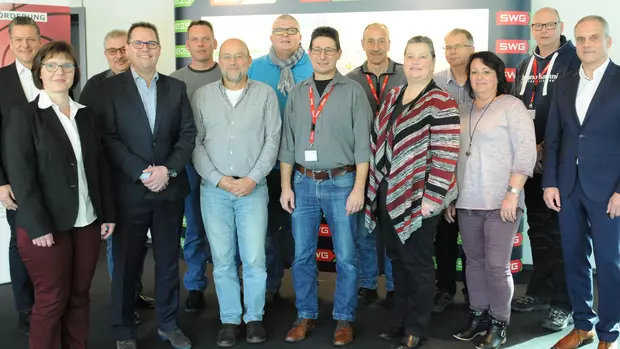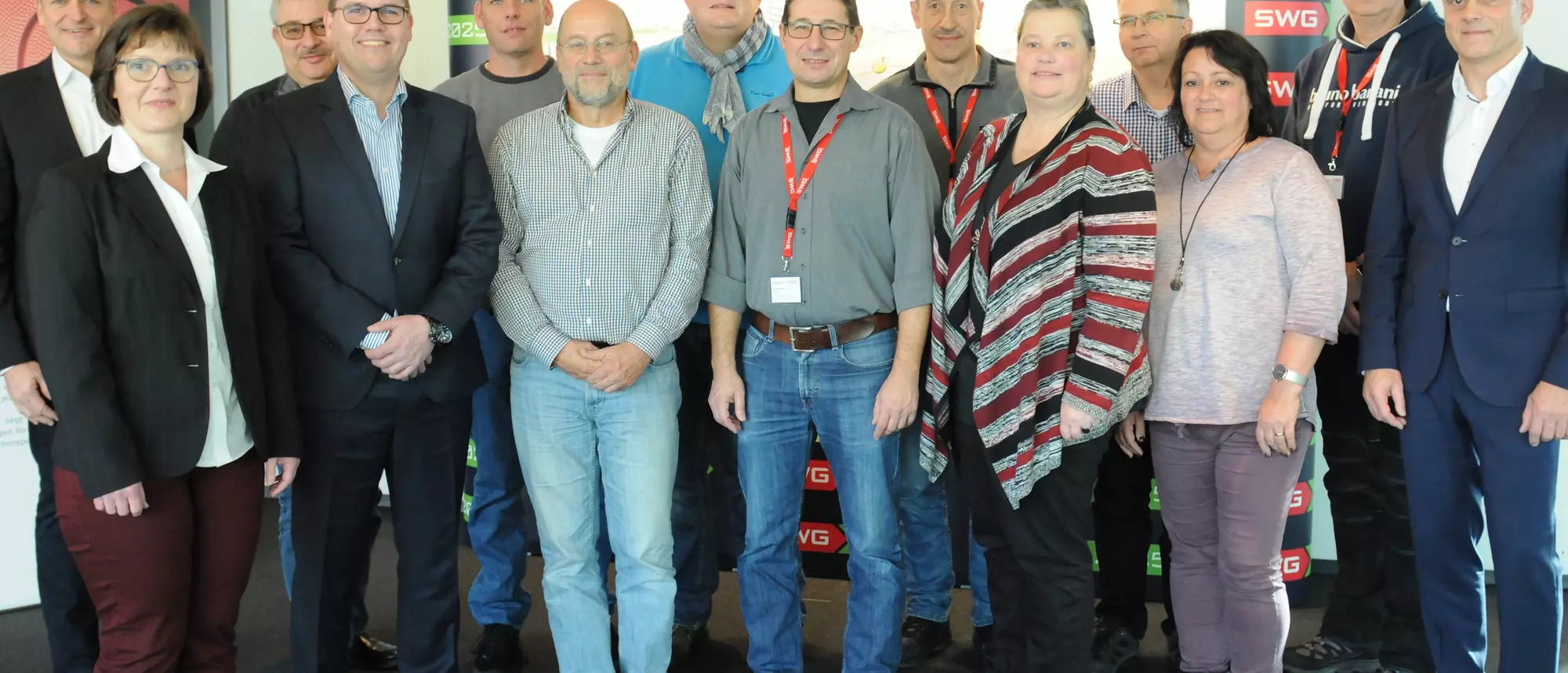
Cities and municipalities have a role model function when it comes to the energy transition. At the 21st Municipal Environmental Meeting, experts from Stadtwerke Gießen explained how local authorities can lead by example.
The future is electric and revolutionary. Ulli Boos, Head of Marketing at Stadtwerke Gießen (SWG), opened his presentation at the 21st Municipal Environmental Meeting with this thesis. Once again this year, SWG invited employees from the town halls in the region. The participants were happy to take the opportunity to find out more. "Many of those responsible in the offices and authorities are currently dealing with the topic of the energy transition and specifically with the area of e-mobility," says Michael Rösner, Head of Sales for Private and Commercial Customers at SWG and as such host of the event. However, because only a few clear signals have come from major politicians so far and the money has been lacking in many places, these efforts often remain unsuccessful.
Future-orientated and affordable
This is precisely where Ulli Boos brought light into the darkness with his presentation. With its E-Revolution product world, SWG has a modular service package that makes many key aspects of the energy transition accessible to local authorities. "In terms of e-mobility, the E-Revolution offers everything that is economically feasible today," summarises Ulli Boos and adds: "The three modules E-Roof, E-Storage and E-Box are likely to prove particularly interesting for local authorities." These are solar systems for self-production of green electricity, battery systems for storing it and charging boxes that allow the solar power to reach the vehicle.
In addition to the holistic approach, the three modules of the E-Revolution provide a very important argument in favour of their use in local authorities, which should also convince long-suffering treasurers: All offerings in the product world are based on smart rental or leasing models with manageable instalments. "The fact that the e-revolution requires no initial investment makes it so interesting for cities and municipalities," Ulli Boos is certain.
In fact, the e-revolution could pave the way to e-mobility for local authorities. This has two advantages: firstly, cities and municipalities would gradually be able to fulfil their role model function. Secondly, it opens up opportunities to reduce the burden on the budget. After all, the numerous but relatively short business trips that usually occur in local authorities offer ideal conditions for e-cars. This is because their operating costs are comparatively low and the only disadvantage to date - the still short range - is practically irrelevant here.
Savings should also be realised elsewhere. After all, the electricity generated by photovoltaics in the e-roof does not only have to serve as an ecological fuel. "It can also be used in municipal properties, which reduces electricity costs," says Ulli Boos. A storage system of a suitable size makes it possible to increase the self-consumption rate - and thus the savings. An option that could prove popular in many town halls. Especially as most local authorities have suitable properties on and in which such systems can be installed. In the second presentation of the day, Thomas Gerlach from Nanoq Home Energy GmbH outlined the individual options available here.
Popular event format
With the Municipal Environmental Get-Together, SWG has created and established an event that is popular with the addressees. It is clear that the selection of topics has met with keen interest among municipal decision-makers. "Our aim is to provide the local towns and municipalities with up-to-date, exciting and, above all, really relevant information on energy issues," explains Michael Rösner. Because a separate agenda item is set aside for the discussion, important information also flows in the other direction: "We learn a great deal from the often very lively dialogue following the presentations," says Michael Rösner happily. Knowing the needs of the municipalities helps the organisers when planning events such as the Municipal Environmental Get-Together. In addition, this first-hand information enables SWG to tailor its services even better to the needs of neighbouring towns and municipalities.

